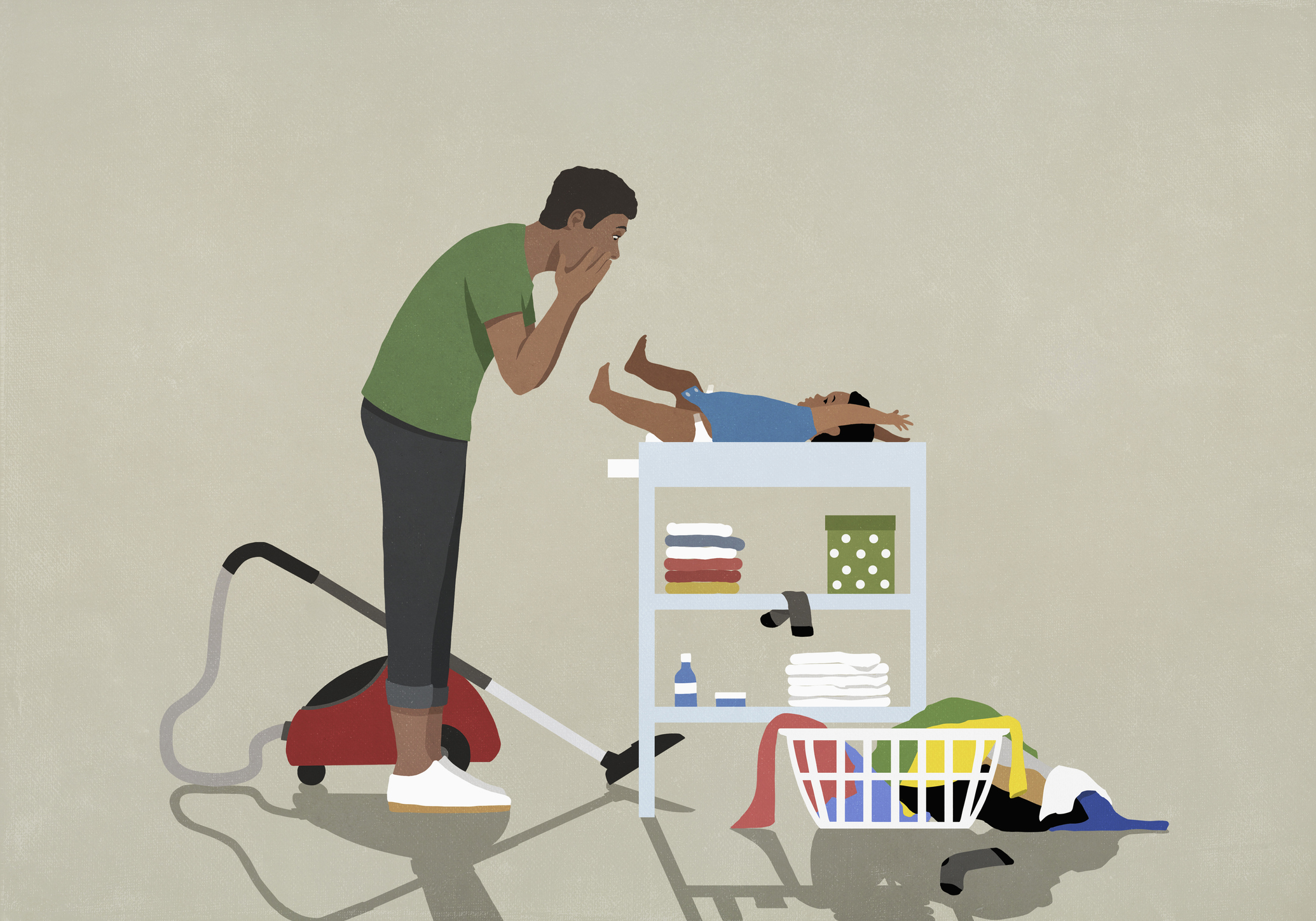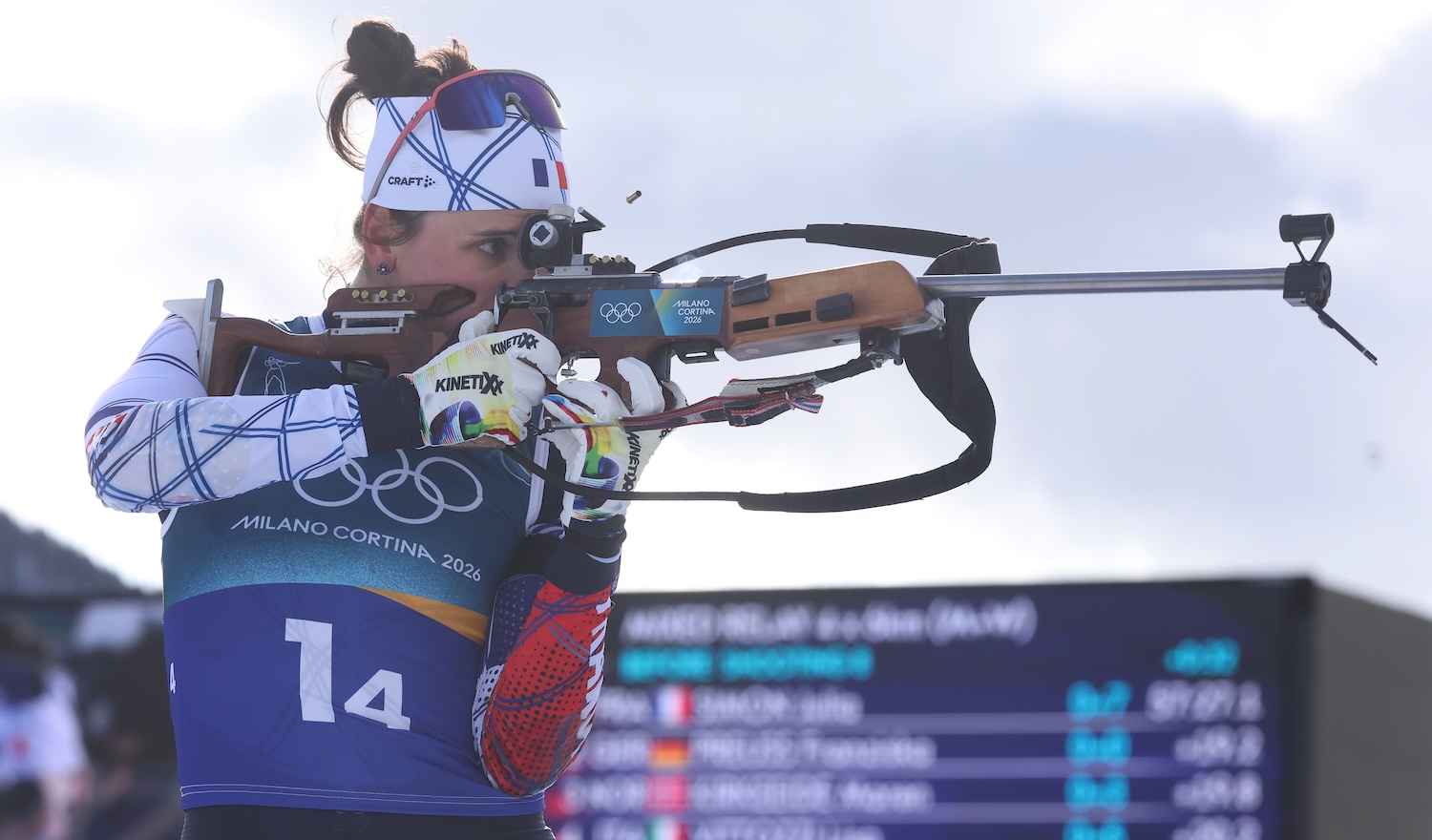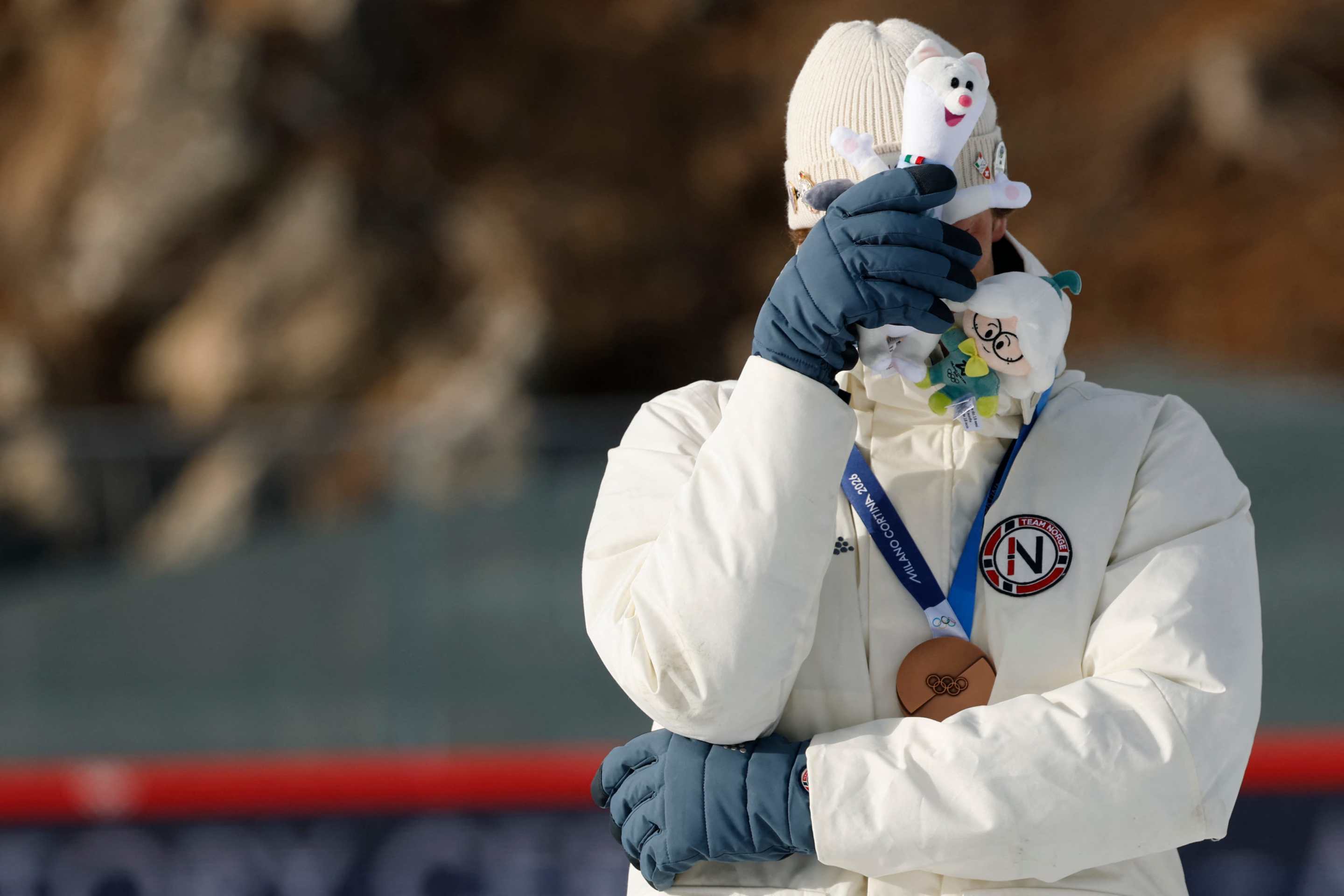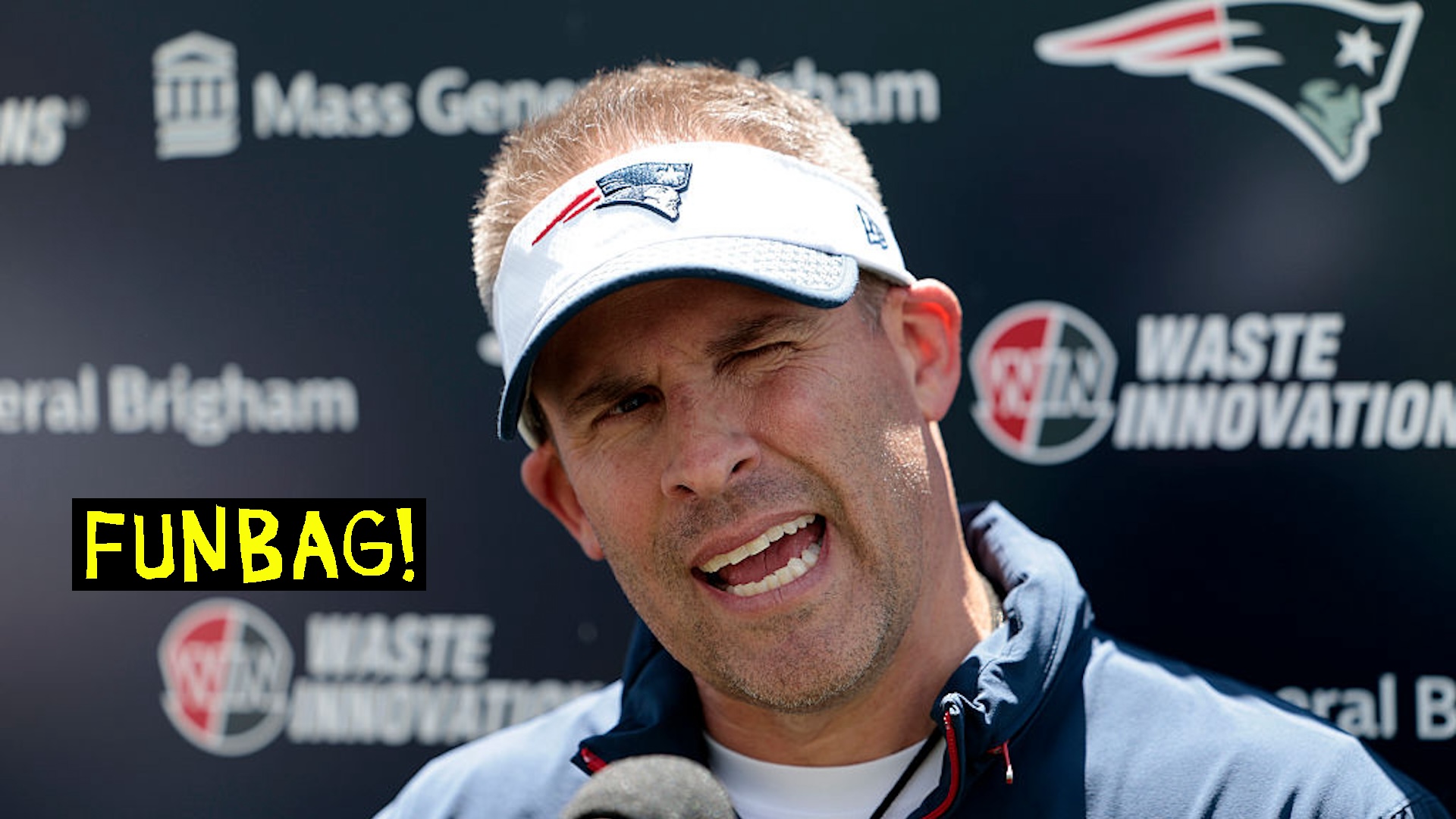The TV in the bar was showing an early-season ACC game, the type where Jay Bilas waxes poetic against a casino ballroom-turned-college basketball court. Two weeks earlier my partner Mitu and I welcomed our first baby into the world, a little girl we named Rukiya, and my aunt and uncle were in town and treating me to an afternoon breather. Instead of the game, my attention was turned to the plate of wings in front of me; it was about as much focus as I could summon in freshly minted parenthood. “Oh, there is no handbook,” my uncle said, somewhere between a chuckle and self-seriousness. “And if there is one, they have it and can’t tell you.”
He and my aunt were as much responsible for raising me as my own mom: Aunt Rose handing down her ingenuity as a creative problem-solver and sorcerer of the culinary arts, Uncle Al teaching me patience and persistence, along with a healthy love of both Star Wars and Star Trek for good measure. And now they were effectively shaking my hand and telling me, “Good luck.”
Mitu and I aren’t exactly in close proximity to our families, which means no one nearby to tag in for challenges like figuring out how to put a newborn to sleep, or, aspirationally, be a drop-in babysitter for the sweet relief of a night out. Every time someone would ask how we planned to approach life with a baby, or the grand philosophies we expected to bring to bear on our unsuspecting child, we shrugged it off. We were excited to be parents—having kids was something we talked about on some of our earliest dates, and we were ready to welcome the whirlwind. But we would be largely left to figure out the day-to-day mysteries of parenting on our own.
Amid the stroller system and the onesies and the disassembled components of the mini-crib we would fit into our (less than 900-square-foot) apartment, we kept a sizable stack of books that covered a spectrum of methods and ideologies of parenting. If there was anyone who was the ideal candidate for a book on fatherhood it would probably be me, the 40-something first-timer whose mom was gone and whose father was not really in the picture.
I wasn’t a stranger to changing diapers or entertaining toddlers, having babysat cousins and friends' kids over the years. But these experiences do not make for a template of parenthood; if you get to leave a child with their parents and return to your own life, that’s closer to the Cool Auntie paradigm than the full-time gig. In this way, reading parenting books just made a kind of sense. The wisdom contained in these paperbacks wouldn’t tell me how to love my child, which was a given, but instead suffuse me with a new level of acuity, part skill and part enlightenment, that could help lead me in the months and decades to come. If unread copies of Sun Tzu could inspire hedge fund acolytes and college football coaches, surely these books could lead me down the path of righteous fatherhood.
“From the moment your partner starts nursing, her breasts are off limits to you. The property rights have officially transferred to the baby. At some point you may be offered a time-share opportunity, but in the meantime, just go about your business and disregard the parade of mammaries flouncing by your face day and night.”
Be Prepared: A Practical Handbook for New Dads
This is from the section titled “Bidding Farewell to the Breast,” in Be Prepared: A Practical Handbook for New Dads, from Gary Greenberg and Jeannine Hayden. The passage continues, “And don’t even consider the irony that at the very moment they become forbidden, her breasts are bigger and firmer than they’ve ever been before (and will ever be again.)”
While demonstrating a dubious understanding of bodily autonomy, this paragraph was not exactly surprising. Be Prepared is a book that tells you exactly what it is from the jump, the cover dominated by an illustration stuck somewhere between Norman Rockwell and a vintage issue of Boys' Life, a flannel-wearing dad with a baby on his back, his various tools, a bottle, a pacifier, and some toys, all clipped to his body and ready to be deployed at a moment’s notice. Trad dad? Tactical dad. It's a useful aesthetic for selling the idea that fatherhood is mutable, if not for all those pesky contradictions of having to care about your partner, let alone a baby.
It’s not that Be Prepared is a book devoid of insight—after all, who doesn’t need to learn how to babyproof a hotel room with the speed and unchecked testosterone of an F1 pit crew, or use a rectal thermometer on your baby and indulge in a bout of mirthful homophobia—it’s that if any meaning exists in these pages, it's lost in turgid layers of misogyny and retrograde puns carrying the banner of “dad humor." “For thousands of years dads have roamed the earth, hunting, gathering, trudging through the fields day after day in order to provide for their families any way they could.” That’s right, we’re going back to the Paleolithic. It goes on: “But it wasn’t until the last quarter of a century that dads began to put down their spears and take an active role in the day-to-day duties of raising a child. So if women seem more natural at bringing up babies, it’s only because they’ve had a huge head start.”
By comparison, Adrian Kulp’s We’re Parents! The First-Time Dad’s Guide to Baby’s First Year is almost transgressive in the simple act of acknowledging the humanity of the partner who actually carries a living being to term and endures the birth. Kulp stakes out the controversial stance that being a new mom can take an incredible toll on a person, and encourages compassion and communication throughout the early months of being a family. Moving through the baby’s first year the book offers insight like this, under Month 2: “Mom is going through a hormonal shift. It’s been natural to see her happy one minute and tearful or overwhelmed the next. This usually only lasts a few days and should have leveled out at this point. If it hasn’t, talk with your partner and/or suggest that she speak with her physician about getting more support with this issue.”
With this book at his side no father could be caught unaware about how to survive pediatric appointments, ways to identify teething, or the best methods for introducing solids to baby’s diet. That’s because We’re Parents! arranges all of its anecdotes and knowledge in bullet points and easily digestible paragraphs, roping together the months and milestones of the first year like an Axios newsletter. Along with categories like “Mom Stats” and “Baby Stats,” you’ll also find things like “Staff Meeting,” to prompt important household discussions like, “Put away the guns: If you own firearms, you’re more than likely responsible and practicing your own safety protocols. If not, becoming a parent is the perfect time to tighten your personal gun laws."
Kulp’s book is handy, if not hurried. But if you are anything less than a hyper-focused efficiency dad who loves quarterly life goals and uses Excel to track your weight-training splits, you may find this approach anxiety-inducing. There is nothing wrong with a punch list, much less one that angles to help you understand the writhing, constantly changing tiny human you are trying to keep alive. But parenting can be exhausting even in its idle moments, and heaping on the weight and expectation of performance-based fatherhood makes it all the more onerous.
When I started reading a used copy of the second edition of The Expectant Father by Armin A. Brott and Jennifer Ash, it was the focus on the more psychological transformation of becoming a parent—the inner workings of the clock, as it were—that felt useful. On balance, the book makes the case that fathers should push themselves to be more involved in the everyday tasks of raising their baby alongside their spouse. And in carefully walking the reader through how a modern dad can seize responsibility, it also tries to help make sense of feelings, those unexpected emotions that creep to the surface in a man as he patiently (or impatiently) observes the changes happening to his partner and the realization that his life will be forever altered. How to handle your partner and the baby bump getting all the attention, or fears over your relative fragility in a world that suddenly seems dangerous and filled with pointy sticks and threats like sushi or deli meats. What to make of the fact you now can’t stop thinking about your relationship with your own father? (Please, go to therapy!) Or worse still, strong preferences on the sex of the baby. “It’s going to be tough, but if you find yourself preferring one gender over the other—particularly if you’re hoping for a boy—try to stop,” Brott and Ash write. “If you can’t, do yourself and everyone else a favor and keep it to yourself. If your child turns out to be the ‘wrong’ gender, chances are he or she will eventually find out about it (probably from an unthinking friend or relative whom you once told in complete confidence)."
Just tuck those feelings away and continue on with the joy of raising a child you quietly despise! Surely leaving those doubts unaddressed won’t form a foundation for future emotional scars for either of you. These are the big and small anxieties that make up The Expectant Father, treating the emotional insecurities that can bloom with parenthood as both real and potentially harmful. Appealing to men to interrogate their feelings and reach higher in taking an active role in the baby’s life is revelatory. Or at least it would be if not for the book’s final chapter on the modern state of fatherhood, which slowly unfolds like a manifesto from a men's rights YouTuber who enrolled in a gender studies class and promptly left after realizing, sadly, that women would be discussed.
Why is it that schlubby dumb dads are a staple of TV and movies? They continue, “Have you ever noticed that there aren’t any fathers in The Cat in the Hat; Babar; Where the Wild Things Are; Are You My Mother?; Goodnight Moon; The Runaway Bunny; and Peter Rabbit?” These messages, they argue, are not innocuous, and plant subtle suggestions in children and society at large about the role of fathers and help to maintain outmoded parenting roles that only serve to further subjugate dads! Think of the poor, downtrodden dad who just wants to do his share, who is prohibited from achieving peak fatherhood by the limitations of the modern, male-dominated workplace. A “glass ceiling” that forces these compassionate dads to work, away from their children. Worst of all, this hostile treatment even can continue within your own home:
“Although most mothers feel that fathers should play an important role in the kids’ lives, research has shown that they want that role to be ‘not quite as important as mom’s.’ In fact, researchers in one nationwide study found that two out of three women seem threatened by equal participation and may themselves be ‘subtly putting a damper on men’s involvement with their children because they are so possessive of their role as primary nurturer.’”
Flipping through these books in the months before and after Rukiya’s birth, I’m not sure I gained a much deeper understanding of what it takes to be a dad. I certainly didn’t feel any more prepared or skilled up than I had before I burned away precious hours reading. But I had made at least one discovery: There is no shortage of paranoia about what type of dad archetype you will become, and what kind of man that makes you.
There are thousands of books on the subject of parenting, with more being pumped out as I write this. For a shaky and increasingly manic publishing industry, humanity's tendency to endure offers something like a ready-made demographic. New books for new parents, and there will always be new parents. As a category, though, the parenting book is a flexible universe, allowing for anything from the generalist who needs to cover the basics to the micro-level research on sleep training or baby-led weaning to the theoretical mathematics of parenting from Emily Oster. For every objectionable idea I marked and highlighted in my own reading, there were some books that proved useful. We found the latest edition of What To Expect: The First Year was straightforward and helpful: a level of advice that sits somewhere between medical and mechanical, helpful to understanding burping methods or identifying the more exotic rashes out there.
But many books on fatherhood overshadow the clinical for something not just sad or anxiety-inducing, but reductive in their imagining of masculinity and caretaking. In reading those titles it felt more and more difficult to recognize myself in them. The audience for books like this is a decidedly white, staunchly hetero homeowner with disposable income whose personal politics may be trending towards the ownership class. Despite growing up in the Midwest, there's not a lot I identify with on that list.
These books speak less to what type of parent you are, instead using that role as a cipher for what man you can, or even should, become. Will you choose the CBS sitcom-ready dad, hapless in his fumblings with affection, but obstinate in his refusal to touch the softer work of taking care of the family? Perhaps you may be more inclined to the quantified dad, who breathes life into his children through a checklist and high earning potential? It's possible you may be the compassionate innovator, the brave dad who takes an active role in childcare and forms his own men's rights group to swap baby food recipes and tips for swatting the local school board. Taking a step back, these books form links in the galvanized steel chain that keeps masculinity in crisis. It's the need for control. The classic proficiency trap for men: to be anything less than the top boy causes shame and doubt in your place in the natural order. You must not only find your place, but win the dadding competition, or be less of a man.
Masculinity, even as it alleges to evolve into something more modern and expansive, remains relatively fixed. The problem with that is that parenting is fluid. Not just in the day-to-day roles in a home—ultimately the diapers need to be changed no matter who is doing it, and the feedings have to happen or chaos ensues—being a mom or dad requires surrendering to something outside yourself, to love and joy and even frustration. It means taking a back seat to something that is almost always outside your control.
Last November, a few weeks after Rukiya's first birthday, Mitu and I were having dinner with friends, including other parents, and someone asked us how the first year had gone. I paused. I wanted to avoid the clichés and loaded deflections of "exhausting" or "amazing," and settled on a visual. You know that setpiece in an action movie where the protagonist gets sucked out of an airplane without a parachute and somehow has to make it to the ground? There's never really any doubt the hero is gonna make it, it's just a question of how. When you're a parent, you fall out of that plane almost every day.
No book prepared me for the first year of Rukiya's life; it's a fallacy to think that one ever could have. When she was born, she spent several days in the neonatal intensive care unit for reasons that are still not entirely clear to us. After a nightmare combination of vomiting and diarrhea in a Buy Buy Baby bathroom in Chelsea, we found out she had unexpected food allergies. We remain traumatized from the experience of the full COVID sweep of our house over Independence Day weekend, trying to care for Ruki while fighting off our own fever and ruination. There was also the not-insignificant challenge of trying to navigate the grim reality of the MTA's spotty elevator network when trying to take your child across town.
Rukiya shines all the same. She has her own sense of humor, a contagious cackle that emerges after she's tested the boundaries of danger and sees the terrified look on your face. She is clever and curious, and quick to dance when she hears something with a beat. We're onto the toddler phase and the books are already outdated. She is no longer crawling; she’s figured out how to walk and at times seems seconds away from sprinting. Our days bring fresh discoveries for all of us: For Rukiya it's concepts like "up," while for us it's learning just how much you can get done on four hours' sleep. We're still learning how three-dimensional scheduling works, the overlapping of three beings' calendars and how to factor in the sometimes unknowable amount of time it will take to get things done. I'm attempting to figure out how to meal plan for a toddler that loves something one day and hates it the next. One of the biggest lessons I learned that was absent from most parenting books was about the power of letting go: when naptime goes sideways, when daycare pickup sneaks up on you, and whatever work or project or stress associated with not getting those things done has to be dropped at your feet.
I do not have Divine Dad Wisdom, it turns out; I am, in fact, not built different. The real MVP of the first year is probably our pediatrician's nurse hotline. I lean on texts to other friends with kids, and phone calls with my aunt and uncle and other family. I learn so much watching Mitu as she's figuring it out in real time. I don't pretend to know how to be a better dad than the next, and I'll confess to making shit up on the fly. None of this would be possible if I was prescriptive about what being a dad is supposed to look like. Life now can be messy and exhausting and thrilling and devastatingly funny. It causes my heart to keep leaping and chasing after something bigger than myself. When I look at Rukiya all I see are endless possibilities, to meet all those tomorrows I have to be willing to welcome the unknown. Every morning brings a new chance to figure out the dad I want to be.






